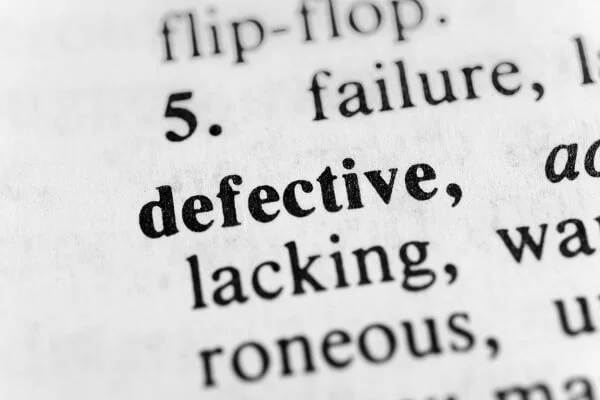An automobile dealership doesn’t design or manufacture automobiles, so why should it be held liable for automobile defects that it had no hand in creating? Like it or not, California products liability law allows injured parties to sue not only the manufacturer, but also the automobile dealership for injuries sustained as a result of an automobile defect – without even proving fault on the part of either the dealership or the manufacturer.
Types of Defects That Can Trigger Liability
Products liability law covers three types of defects:
Design defects: Design defects typically cover all automobiles of the same make and model as the one that injured the defendant, and losing a design defect case can result in the need for an expensive recall.
Manufacturing defects: A manufacturing defect, such as a malfunctioning brake drum, might affect only one vehicle (but it could also affect many vehicles).
Failure to warn: Liability for “failure to warn” occurs when the defendant failed to warn of a hazard that might not have been considered unreasonably dangerous if it had been warned of.
Prerequisites to Seller Liability
A plaintiff must prove each of the following elements on a “more likely than not” basis:
The product was in defective condition and unreasonably dangerous.
The defendant was in the business of selling automobiles or automobile parts.
The defect existed at the time the automobile was sold.
The vehicle was used only in an intended or foreseeable manner (not as a racecar, for example, unless the car was designed for such use).
The vehicle reached the user without substantial damage. The user need not be the defendant since even an injured passenger can file a products liability lawsuit.
What Is “Unreasonably Dangerous”?
There is no universally applicable definition of “unreasonably dangerous” – it’s a judgment call. Some defects (such as defective upholstery) are not considered unreasonably dangerous. Other defects (such as a cruise control cutoff mechanism that is activated by a button on the steering wheel rather than by tapping the brakes) might considered unreasonably dangerous, but only if they were not warned of. Other defects are considered unreasonably dangerous no matter what.
Defective Automobiles Are “Hot Potatoes” in California
In the case Ibarra v. Todey Motor Co. (2013), a California appeals court held an automobile dealer strictly liable (liable without fault) in a products liability design defect lawsuit. The dealer’s liability arose from a “pass-through” transaction between General Motors and the buyer, from which the dealer did not even profit. Any vehicle that passes through your hands could subject you to liability.
At CKB Vienna, we don’t let anybody push our clients around, including the California court system. We know how to handle frivolous lawsuits and opportunistic plaintiffs. If you are subject to a products liability claim or anticipate such a claim, call us at 909-980-1040 or contact us online so that we can set up a consultation to explore your options. We serve clients from all over Rancho Cucamonga, including Alta Loma and Etiwanda.

